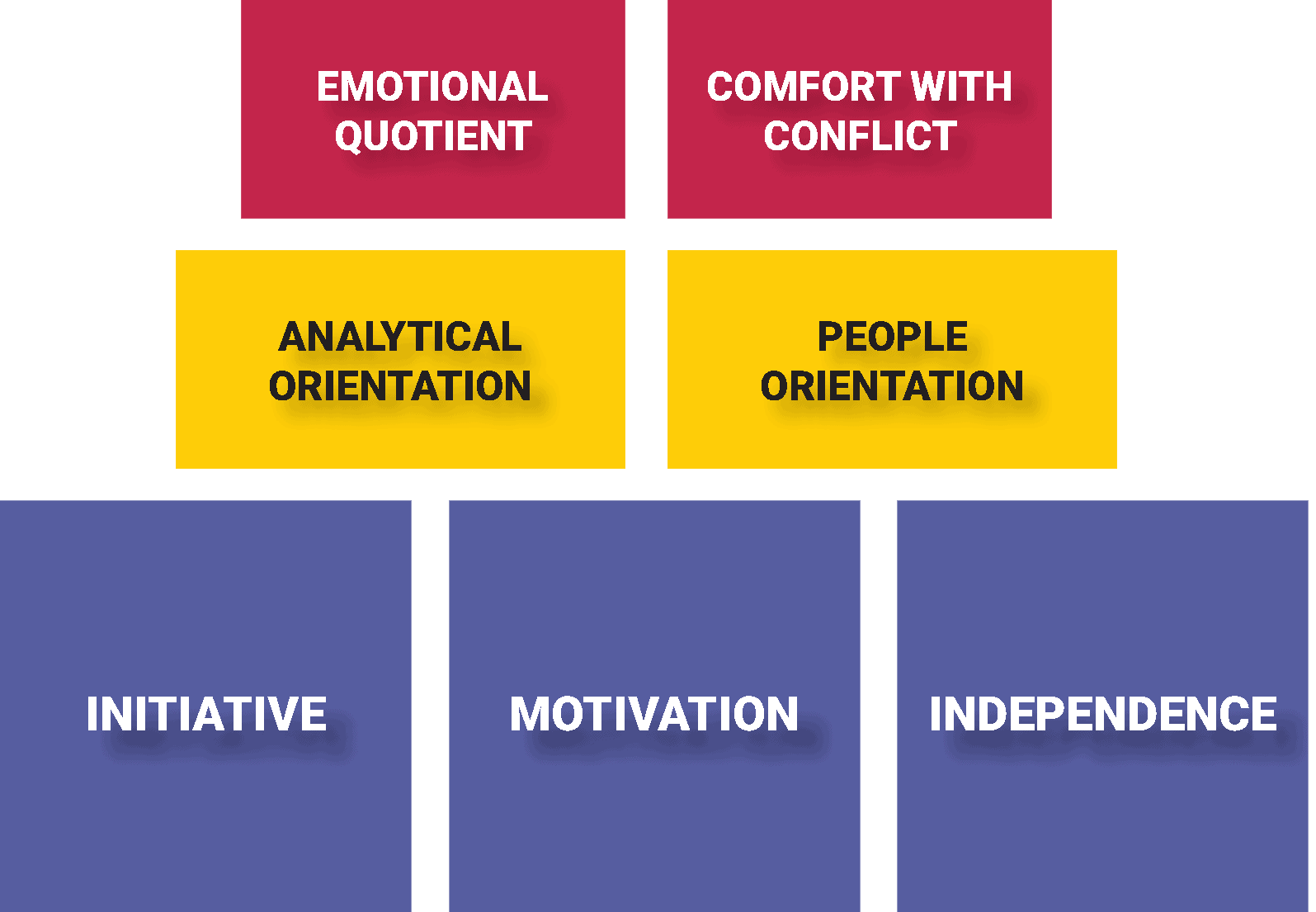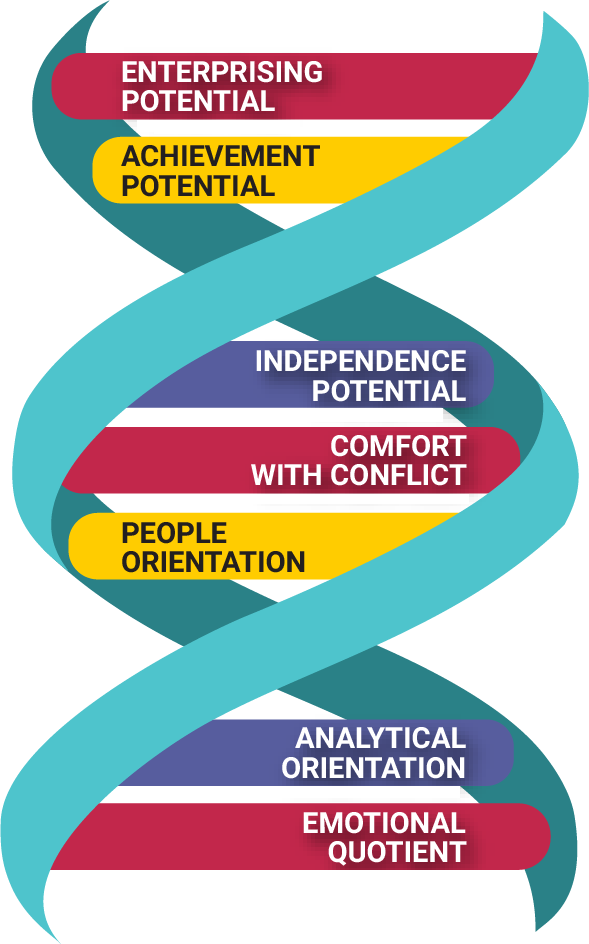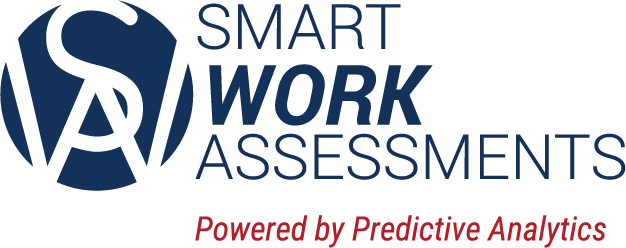Personality traits reflect an individual’s baseline potential (talent) and their attitudes and beliefs (habits)...
Our POP™ Assessments measure 7 hard-wired personality traits that everyone expresses to a greater or lesser degree. Together, these traits reflect an individual’s baseline potential (talent) and their attitudes and beliefs (habits), as well as personality dimensions that can predict alignment with a manager, team, or culture.
Smart Work’s POP™ Assessments are normative. Rather than forcing people to choose between two options, our items use 1-5 rating scales to measure traits. Smart Work Assessments measure individuals relative to more than 30+ million existing assessments to show how they compare with the traits of high performers in a particular job role or industry.
In 40+ years of statistical research and validation, we have developed a full suite of targeted assessments you can use for matching individuals with your specific industry and roles.
Building Blocks of Personality

Our POP™ Assessments have an unmatched predictive power that translates into key performance and retention improvements. Smart Work’s POP™ Assessments go beyond describing people’s work behaviors and emotions to predicting their potential to perform in your job roles.
Would You Rather GuessWhat People Could Do?
Competitors' Assessment Tools:
- Measures behaviors that are situation-specific
- Use "forced choice" items that do not allow for comparing people
- Are descriptive and tend to "pigeonhole" people
- Lack the predictive power needed for EEO compliant employee selection / hiring
- Require psychologist participation to understand and execute
- Descriptive content doesn't translate well to real work
OR
Quantify And Predict What People WILL Do?
Our Proven System:
- Measures hard-wired personality traits & learned behaviors that predict performance potential, as well as self confidence and stress levels at the time of the assessment.
- Uses range-based (normative) measurement which allows for legally comparing individuals and job classifications
- Is quantitative and descriptive but does not "pigeonhole" people
- Can be normed / validated to a specific culture, job, or manager for selection / hiring
- Can be easily interpreted by manages for hiring, coaching, development & mentoring
- Quantitative predictive data is directly tied to job performance and retention
Bottom line: Companies that integrate Smart Work’s POP™ Assessments into their hiring process have seen more than a 150% increase in performance and lower costs.
Strength Patterns Across These Seven Personality Traits Predict Potential Career Success
All of the POP™ Assessments developed by SMG and their team of statistical researchers measure the seven personality traits—the Inherent component of Talent—that have been statistically demonstrated to predict high performance and retention in business roles.
Completing any of our POP™ Assessments requires rating your reaction to each item in a list of statements; for example, in response to “I do not enjoy spending time with strangers,” you use a scale from 1 to 5 to indicate how much you agree with that statement: 1=disagree strongly to 5=agree strongly.
Using our sophisticated proprietary algorithms, the Smart Work | Assessments statistical engine transforms those responses into numbers, one for each of the seven predictive traits. That number places your personality strength for that trait on a continuum, somewhere between two extremes.
Here are the traits, along with a brief description of the extremes for each range:

- Enterprising Potential—how you express initiative, from proactive to responsive
- Achievement Potential—what motivates you: $$/challenge? People & service? Duty?
- Independence Potential—from strongly independent to strongly prefers teamwork
- Comfort with Conflict—from very comfortable with conflict to actively avoids it
- People Orientation—from builds relationships quickly to builds relationships slowly
- Analytical Orientation—from learns for the sake of learning to learns only the minimum
- Emotional Quotient—from uses emotional information effectively to relies on thinking, not feeling
Psychologists have long understood that these inherent traits, the core elements of our personality, are established early in life, and don’t readily change. Indeed, Enterprising Potential, Achievement Potential, and Independence Potential are generally well-established in an individual by the time they reach age 16.
The remaining four traits—Comfort with Conflict, People Orientation, Analytical Orientation, and Emotional Quotient—congeal a little later, after one has had more experience working with people and information. Still, by your late 20s/early 30s, these traits are also pretty well baked into your personality.
Bottom line: Don’t guess—assess! Inherent personality strengths, as measured by our assessments, are the most potent predictive tool that you can use for finding high performers that match your talent needs.
